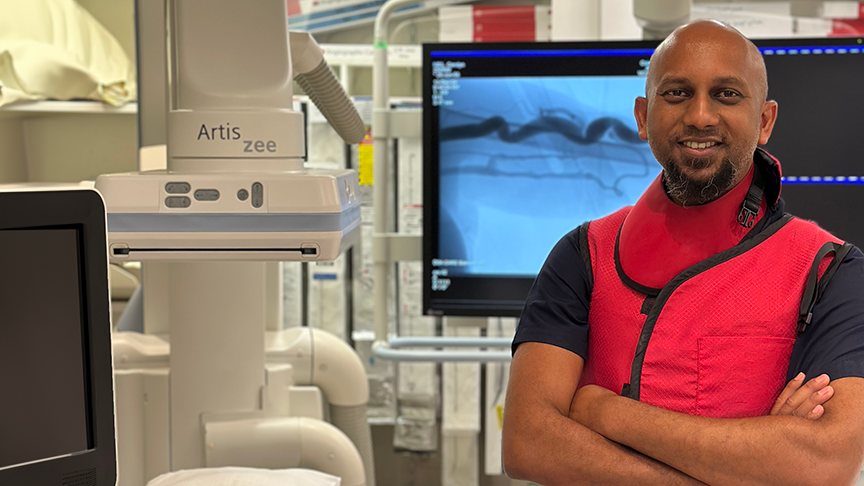
Cairns Hospital has been training one of the South Pacific’s few kidney disease experts, who will – in turn – train the next generation of specialists.
For many years Dr Amrish Krishnan served in Fiji as the sole nephrologist, despite Fiji having one of the highest rates of kidney failure in the world.
Dr Krishnan said Cairns Hospital had one of the best vascular access services in the Pacific region, and one of few hospitals in Australia where nephrologists performed a procedure called fistuloplasty, themselves.
Naturally, Dr Krishnan chose Cairns Hospital for his advanced training attachment.
Dr Krishnan will be training at the Cairns Hospital under the mentorship of interventional nephrologist and director of renal services, Dr Murty Mantha, before returning to Fiji, where he was born and grew up, to serve Fijians and other Pacific Islanders.
Each year in Fiji, more than 800 people are diagnosed with end stage kidney disease and roughly 40 per cent of them die within six months of their diagnosis.
Although Fiji has been able to establish and sustain dialysis for patients with end stage kidney disease for more than a decade, with more than 250 patients on haemodialysis across multiple centres at present, Dr Krishnan said long term outcomes had been poor due to patients not being able to get or maintain good vascular access for haemodialysis.
Vascular access in haemodialysis refers to the channel via which blood can be taken out of the human body, be filtered in a dialysis machine, and then be returned to the body.
The best type of vascular access for haemodialysis is a surgically created arteriovenous fistula, often made by connecting arteries and veins in the forearm or upper arm.
Over the years Dr Krishnan describes losing several patients in Fiji, young and old, who simply ran out of vascular access options for ongoing dialysis, due to stenosis (narrowing) in the fistula and associated veins, or due to blood clots or other complications.
He said with no specialist in the Pacific trained to treat these complications previously, the treating doctors and nurses and the patients and their families felt helpless.
'It is a painful way to lose a patient,' he said.
'Being able to bring these skills back to Fiji and teach others will have an enormous impact on the provision of renal medicine in my country,' he said.